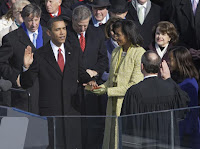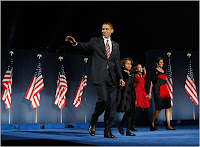Near the end of this week, we discussed the 16th Amendment and the income tax - its fairness and unfairness. Its opponents have proposed a flat tax that everyone pays the same rate across the board: 20%. That way, if you earn more, you technically pay more. So, in some ways it sounds progressive.
The argument for the flat tax focuses on several arguments: 1. It eliminates special- interests by treating all taxpayers equally. Taxpayers will no longer be able to "scam the system by hiring enough lawyers, accountants and lobbyists."
2. It will boost economic growth by allowing businesses and investors to invest more money (saved by not giving as much money in taxes) into other businesses and ventures.
3. It eliminates the capital gains tax, the estate tax (other people call it the "death tax"), and double taxes on savings (taxed once when you earn it and it's deposited into the bank and then twice at the end of the year as part of your income though it already is in your bank account).
4. It's amazingly simple. Household income tax forms are now done on a postcard. It also treats all businesses the same: "Microsoft to a hot dog stand would play by the same rules."
Arguments for the progressive tax include: 1. All Americans benefit from two of our government's responsibilities, protection (police, firefighters, public health, military) and empowerment (roads, public education, banking system for loans and economic stability, SEC for the stock market, courts, national parks, public buildings, etc.), and they should be available to everyone. We are financially responsible to maintain these so that they may be used for the common good. These protections are maintained through taxes.
2. The wealthy (corporations, investors and other wealthy individuals) pay more into the system because "our taxes create and sustain, [and] empower the wealthy in myriad ways to create their wealth." In other words, they have benefited from the system in place, they should pay to maintain it.
"Consider Bill Gates...Though he has undoubtedly benefited from his unusual
intelligence and business acumen, he could not have created or sustained his
personal wealth without the common wealth [of the United States]. The legal
system protected Microsoft's intellectual property and contracts. The
tax-supported financial infrastructure (phones, electricity, Internet) enabled
him to access capital markets and trade his stock in a market in which investors
have confidence. He built his company with many employees educated in public
schools and universities. Tax-funded research helped develop computer science
and the internet..." and so on.
3. The wealthy are morally obligated to sustain the American system b/c they benefit more from it than the average American. "Ordinary people rarely use the courts; most of the courts are used for corporate law and contract disputes." Therefore, the rich pay more than the poor or middle class b/c the rich utilize the system more often to create and sustain their wealth.
So, I think we have two very persuasive arguments here, but I think we're missing the real questions that we should be asking. The questions we should be asking are: 1. What are we spending our money on? 2. Why are we spending so much of our money instead of letting the American people spend it? 3. Why do we have such a huge national debt? 4. What can we do about it? Are you willing to take on this muckraking project w/ me? We can educate Groves H.S. about the amount of money spent by our government. We can pressure our Congressmen and women about spending too much. You are the future voters. Get educated now about the National Debt.
More on the progressive tax from the Rockridge Institute - http://www.rockridgeinstitute.org/research/lakoff/progressive-taxation-some-hidden-truths/?forPrint=1More on the flat tax from the Heritage Foundation - http://www.heritage.org/Research/Taxes/bg1866.cfm
 During the Great War, the United States went to great lengths to stop people from expressing their views on the war and the draft. According to historian Sean Dennis Cashman, Wilson that war "required illiberalism at home to reinforce the men at the front. We couldn't fight Germany and maintain the ideals of Government that all thinking men shared...once led into war, [Americans] will forget there ever was such a thing as tolerance" (505).
During the Great War, the United States went to great lengths to stop people from expressing their views on the war and the draft. According to historian Sean Dennis Cashman, Wilson that war "required illiberalism at home to reinforce the men at the front. We couldn't fight Germany and maintain the ideals of Government that all thinking men shared...once led into war, [Americans] will forget there ever was such a thing as tolerance" (505). 

 Given what we've read and seen about the Spanish American War, how does this war fit with the criteria that we'd discussed? Consider the following:
Given what we've read and seen about the Spanish American War, how does this war fit with the criteria that we'd discussed? Consider the following:


